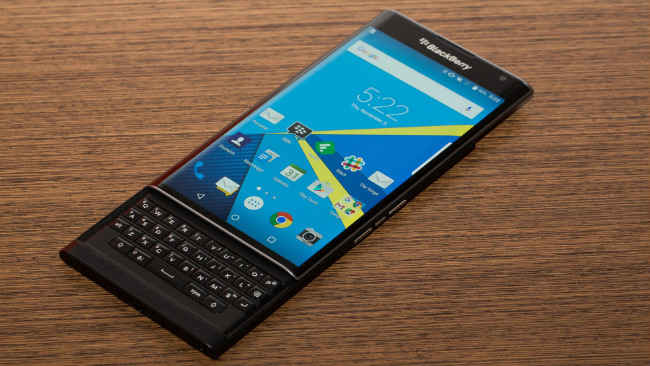BlackBerry CEO optimistic on company’s smartphone business
In an interview with CNBC, BB CEO John Chen spoke about the company's future plans on the hardware front, which extends beyond two upcoming Android devices.

BlackBerry, the company that once ruled the world of mobile devices, have been attempting a comeback of late, with Android-powered devices fused with enhanced security features and a physical keyboard. While the BlackBerry Priv has not been a massive hit, it did to BlackBerry what it would possibly have hoped for – get the company off to a start again, years after the iPhones and Androids took over. The BB Priv sold 600,000 units, not matching its pre-launch expectations and leading to BlackBerry CEO John Chen stating that despite the optimism, the company would have to shift its focus to software and services if it did not find a way to keep its hardware business profitable.
 Survey
SurveyNow, in an interview with CNBC, John Chen has reiterated his optimism behind its hardware business, in a more confident manner. Not only does he believe that BlackBerry will continue making handsets (fans, rejoice!) but he also claimed to be “very close” to getting the company back to profitable ways. Chen has yet again confirmed that there are two new BlackBerry devices presently in the works, and we expect them to be aimed at the mid-tier segment of mobile phones. He has also affirmed the presence of a plan beyond the two devices for BB’s hardware segment, and remains optimistic for the company’s future. However, he has not revealed more details for these plans.
"Despite missing sales targets, BlackBerry remains optimisitic"
BlackBerry’s glory days began back in 2002, when the company capitalised on making mobile phones with a closely-knit operating system and secure messaging/email functions, thereby capturing a large market of corporate users. Later on, it spread out to a wider variety of users, with its revenue rising to $20 million in 2011. This was backed by BlackBerry’s highest-ever single-quarter sales figures of 14.6 million devices being sold in Q4 2010. It was at this time that BlackBerry was at its pinnacle, accounting for almost 20 percent of the global smartphone operating system market share.
Despite not meeting targets, the Priv has set BlackBerry off to a start
Since then, BlackBerry has seen a steady decline in its market share, shipment numbers and revenue, with the advent of the iPhone. Google’s promotion of the open-source mobile operating system, Android, caught fancy of multiple major electronics manufacturers across the world. The growth of touchscreen devices coupled with a steady death of physical keypads on phones led to a change in the way people buy and use phones. The global smartphone market saw a massive boom in the number of touch devices sold, mostly powered by the Android OS across budget and flagship ranges alike. In tandem, Apple held fort in the premium smartphone buyers segment with its iPhones, and all of these factors combined led to a steady decline of the BlackBerry OS.
Almost five years after its previous pinnacle, BlackBerry is aiming to make a comeback, and although the BB Priv failed to meet expected sales figures, it will be buoyed by the interest it generated among its massive user base that remained loyal to company once upon a time. Will it be able to capitalise on it? We’ll have to wait and see.
